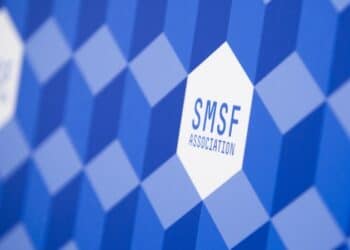Labor this week announced a proposal to remove cash refunds for excess dividend imputation credits, as a way of “improving the budget bottom line”.
In a public statement, Bill Shorten said that Australia’s dividend imputation system was introduced by Paul Keating to eliminate double taxation on dividends from company profits.
“Under this system, shareholders can use imputation credits to reduce their overall tax liability,” he said.
“Under Howard and Costello, a concession was created allowing some individuals and superannuation funds to receive a cash refund from the ATO if their imputation credits exceeded the tax they owed.”
Mr Shorten said that the Labor government will seek to close down the concession created by Howard and Costello, and return to the arrangement first introduced by Hawke and Keating – so that imputation credits can be used to reduce tax, but not for cash refunds.
The proposed policy has been largely criticised by the superannuation and wider financial services industry, with a number of groups expressing concern it will erode retirement savings and impact millions of Australians.
The Self-managed Independent Superannuation Funds Association (SISFA) said the policy “fails the test of fairness” as it will benefit taxpayers on higher incomes at the expense of those on lower incomes.
SISFA managing director Michael Lorimer said that under this proposal, taxpayers with an effective average tax rate of 30 per cent or over will receive the full benefit of franking credits while those on lower incomes will lose out.
“Mr Shorten is meddling with the successful concept of imputation – that when company dividends are paid, they are taxed at the individual’s tax rate with full credit for the tax already paid by the company,” said Mr Lorimer.
“Under Labor’s plan, anyone in retirement and living on their superannuation savings will now have every dollar of their income from dividends taxed at a rate of at least 30 per cent.”
Mr Lorimer said while Bill Shorten says his plan to deny dividend tax refunds to super savers will mainly hit self-managed funds, in reality it will hit millions of members of the large industry and retail funds as well.
Tax Institute Senior Tax Counsel Professor Bob Deutsch described the policy as a “low hanging fruit” for Labor as it will require minimum legislative change, generate around $11 billion over the 2018-19 forward estimates and cause relatively minimal damage to Labor’s constituency.
“It will, however, cause some ructions in equity markets where tax refunds of excess imputation credits have been an important part of the investment matrix for equity investors, particularly self-managed superannuation funds,” said Mr Deutsch.
The SMSF Association estimates that this proposal would impact more than 1 million Australians saving for retirement and other purposes.
SMSF Association chief executive John Maroney said based on calculation by the association, removing the cash refund for imputation credits would cut about $5,000 in income from the median SMSF retiree earning about $50,000 a year in pension income.
“To be saying these people won’t be paying any more tax is just semantics,” said Mr Maroney.
“This change would single out SMSF members as one of the few groups of taxpayers who will have the profits of companies they own taxed higher than their marginal tax rate. Instead SMSF members in retirement phase will have company tax paid on their share of a company’s profits when none should be paid at all.”
Mr Maroney said the current system should remain as it removes double taxation of corporate profits, promotes corporate discipline in capital management and encourages corporate compliance with tax obligations.
It is also likely to have “unforeseen consequences” such as a shift in superannuation fund investment strategies, he said.
“Funds seeking yield to deliver retirement income, especially SMSFs which are paying income streams, would need to shift their asset allocation towards investments which can provide increased yield. This may lead to funds having to shift to a higher risk asset allocation in the retirement phase,” he said.
“Another possible outcome is SMSFs looking to shift investment from Australian companies to foreign companies with the after-tax return on domestic companies less attractive.”
JBWere technical services manager Kym Bailey said this latest policy position is a reflection of the “unofficial war that industry funds declared on SMSFs a number of years ago which now has a fully receptive political sponsor”.
Ms Bailey said the SMSF industry should pay attention to the Opposition’s policy as there is “an equal chance that it will become government policy in the future”.



All individuals are not in the “rich” category. Many depend on the franking Credits and Imputation credits. As mentioned in the article, many of us including my family will be hit by Labour’s proposed policy changes.
The politicians get retirement benefits after serving the parliament at Sate or Federal level; more so the Chief/Prime Ministers.
Mr Shorten and his cohorts want to continue enjoying such benefits; but wants common people to suffer.
As mentioned above, the Industry funds don’t want SMSF’s to thrive. so that they can dominate the industry; why would they oppose the change?
I am surprised not much opposition has come up till now.
This stupid Labour party just doesn’t get it!!!. I think we should put forward a proposal that politicians like Shorten have their publicly funded pension be significantly reduced all in the name of funding the debt his Government incurred and lets see if he is still so keen to smash pensioners. What a complete idiot.
I am afraid that Mr Lorimer’s comments” anyone in retirement and living on their superannuation savings will now have every dollar of their income from dividends taxed at a rate of at least 30 per cent” is simply not true. The franking credits will reduce the tax PAYABLE so income will NOT be taxed. At current rates a fully franked dividend of $35000 carries a franking credit of $15000. The grossed up income is $50000. The tax on $50000 is $8327 so currently there is a refund of $6673. Under the new proposal the refund would not be given but the $35000 is tax free. Is this a bad thing? Is it not a good thing for the WHOLE community, the whole of Australia? Even a fully franked dividend of $70000 is tax free. By my calculations the tax free, fully franked dividend limit, is $94500 for an individual. I realise that self managed super funds are hit harder but again I ask: is this not a fair proposal for the whole community?
No it’s not. To use your example, a fund in pension phase would have $50,000 in income (all tax free assuming 100% pension) and receive a refund of $15,000. under this proposal, they get no refund. This is essentially a $15,000 tax which equates to 30% of $50,000. Another fund may have an accumulation member making contributions. The $15,000 may be used to offset their contributions tax. How is this fair? What is next? Will the PAYG withheld by my employer in excess of my tax payable on my taxable income be withheld by the ATO? Because well, it’s not extra tax, it’s just not getting a refund. It’s essentially the same thing but I’m sure everyone would agree that is an outrageously unfair proposition that would never be put forward by any government. The imputation system as it is is fair all around and Shorten’s proposed change is a step backwards. It’s a disincentive to saving and penalises self funded retiree’s and small business owners. The truly wealthy will have other income to use up the credits or will restructure their affairs to ensure this happens.
The hardest hit relatively will be low income Australians with taxable incomes less than tax free threshold of $21k p.a. that hold Australian shares in their own names. Stay at home parents for example.
As for Labor targeting SMSF’s – SMSF’s in the accumulation phase could acquire other assets e.g. REITs, foreign shareholdings and commercial property to take full advantage of the franking credits to offset the Australian tax liability (except for SMSF’s in the tax-free pension phase).
Once again the myth that SMSF members are somehow wealthy is rolled out by the labour party. Most are not. The average member balance is lease than $1m. All are trying to self fund their retirement and not be a burden on the government purse. This policy will impact every person who has superannuation savings.
A reduction in tax credits will lead to lower returns and in the long term a greater reliance upon government funded pensions.
The rhetoric from the opposition is hardly surprising, coming from a party whose leader (once responsible for SMSF) did not even have the courtesy to attend 2 SPAA conferences & turned up to 1 approx 3 hours late